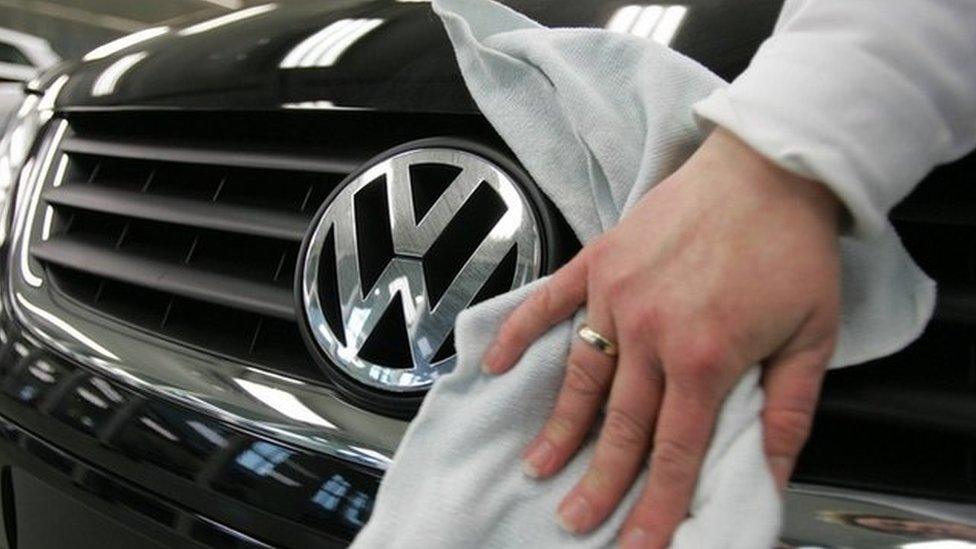BMW, Daimler and Volkswagen face EU diesel emissions probe
- Published
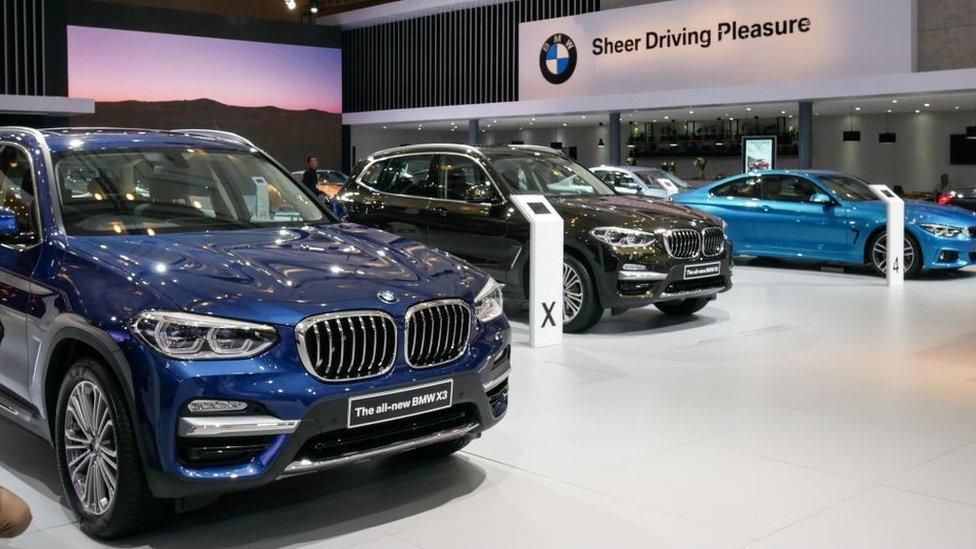
German carmakers BMW, Daimler and Volkswagen are to face an EU inquiry for allegedly conspiring to restrict diesel emissions treatment systems.
The European Commission said it was investigating whether they agreed to limit the development of systems to reduce harmful emissions.
It said that if proven, this could mean that consumers had been denied the chance to buy less polluting cars.
The firms were raided in 2017 as part of the Commission's earlier inquiries.
The Commission said its in-depth investigation was intended to assess whether the carmakers colluded, in breach of EU anti-trust rules, to avoid competing on technology to clean up petrol and diesel car emissions.
It said it was focusing on information indicating that the companies, including VW-owned Audi and Porsche, had met to discuss the development and deployment of emissions technology.
Two kinds of emissions control systems are under scrutiny:
Selective catalytic reduction systems, which reduce nitrogen oxide emissions from diesel engines
"Otto" particulate filters, which reduce emissions from petrol-driven cars.
"The Commission's in-depth investigation in this case concerns specific co-operation that is suspected to have aimed at limiting the technical development or preventing the roll-out of technical devices," it said.
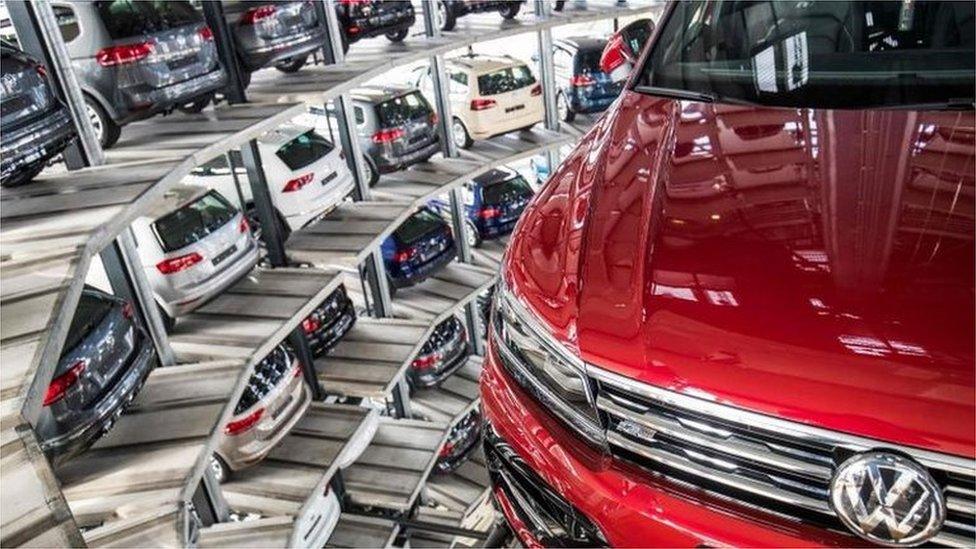
All three companies issued statements saying they were co-operating fully with the Commission and would not comment further on the proceedings.
Daimler pointed out that the proceedings related exclusively to Europe and that there had been no price-fixing allegations.
BMW said it was "wholeheartedly committed to the principles of market economics and fair competition".
The Commission said it had no indications that the carmakers co-ordinated with each other on the use of illegal emissions-cheating "defeat devices".
Volkswagen admitted in 2015 to using "defeat device" software in the US to cheat diesel engine emissions tests, plunging the company into scandal.
Since then, emissions irregularities have surfaced at several major carmakers, although none were found to be as serious as at Volkswagen.

Analysis:
Theo Leggett, BBC business correspondent
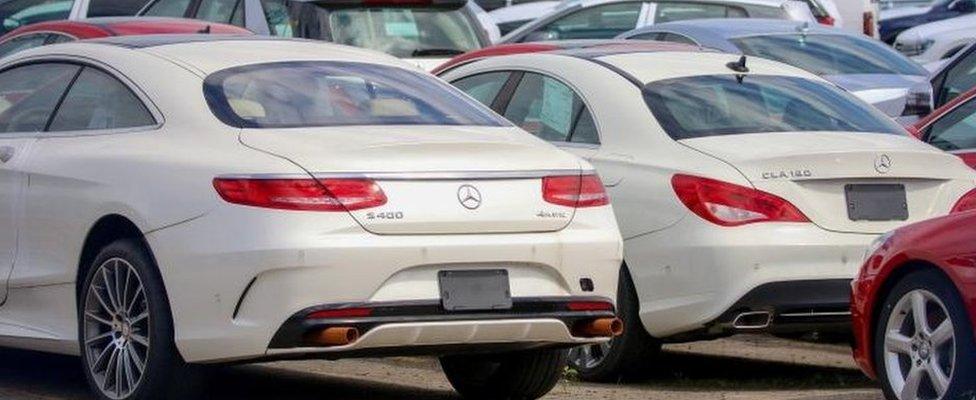
This investigation could prove very costly for the carmakers concerned.
If the Commission finds that there has been deliberate wrongdoing they could face very heavy penalties. Cartel action is frowned upon in Brussels. Fines can run into the hundreds of millions - if not billions - of euros.
Then there's the political backdrop. Since the scandal over emissions cheating at Volkswagen erupted three years ago, any hint that manufacturers may have been sabotaging efforts to produce cleaner cars has gone down very badly - especially in Germany. The fact the VW Group itself is involved is likely to raise further concerns.
Car companies do talk to each other regularly about issues such as technical standards or improving safety. All of that's allowed; the question is where they draw the line between essential cooperation and anti-competitive behaviour.
That's likely to be the focus of the Commission's inquiry, which remains an inquiry - for the moment.
- Published20 March 2018
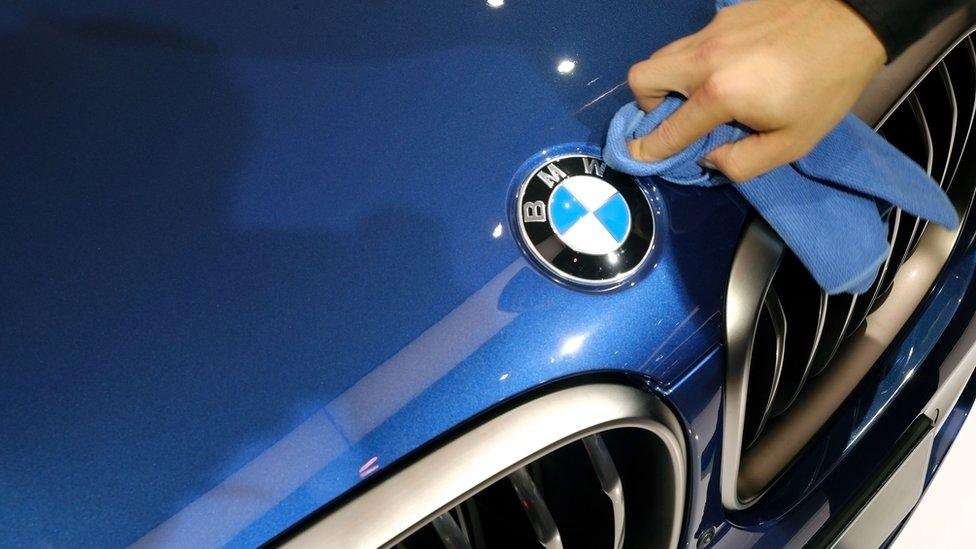
- Published27 July 2017
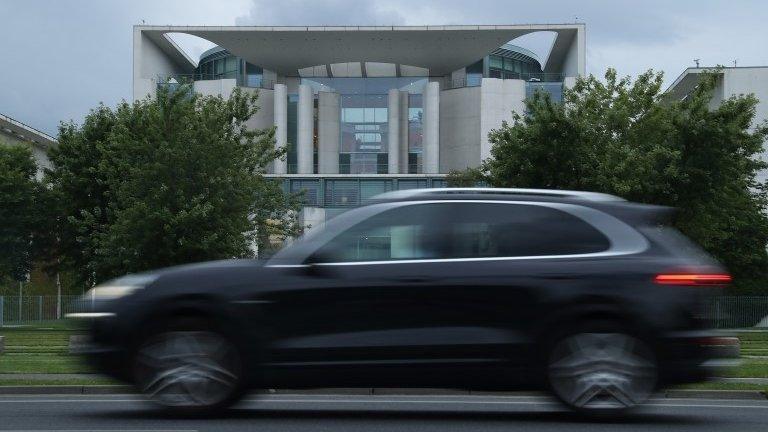
- Published26 July 2017
